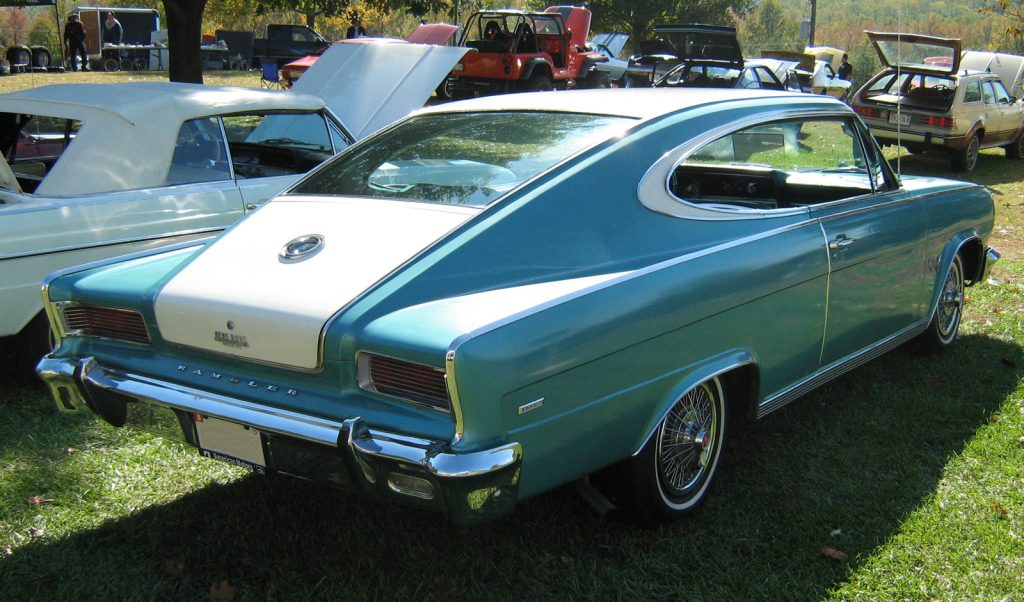Overcoming objections: A short process to help you address emotional need
 1965 Rambler Marlin by American Motors Corporation (AMC). A sporty “personal-luxury” two-door hardtop fastback. (Chrostopher Ziemnowicz/Wikimedia)
1965 Rambler Marlin by American Motors Corporation (AMC). A sporty “personal-luxury” two-door hardtop fastback. (Chrostopher Ziemnowicz/Wikimedia)
People who work in sales have known for a long time that buying is an emotional decision.
Think about someone you know who recently made a purchase—like a car. Cars make a great example because people frequently buy cars that express their identity.
If people want to be seen as caring about the environment, for example, they might buy a Prius or a Chevy Volt. If they want to be seen as rebellious or free, they might buy a Corvette or a convertible. People hate minivans because minivans are a practical vehicle. Minivans express that you have kids. Enter the sports utility vehicle—you can be practical and still express yourself!
You get the picture. People buy based on emotions.
In Customer Centric Selling, Michael Bosworth and John Holland sum up what good sales people know:
When a buyer decides to buy from a particular seller, it is an emotional decision. Equally, when a buying committee decides to buy from a particular vendor, it is an emotional decision. When a buyer decides to pay an asking price rather than holding out for a lower price, it is an emotional decision. When a buyer decides to buy from a person he or she is comfortable with, rather than shopping for the lowest possible price, it is an emotional decision.
Yet when you talk to people about their car-buying decision, they often say things like:
- “I got a really good deal.”
- “My old car was about to die.”
- “It gets great gas mileage.”
- “It will increase in value.”
- “No one else makes engines like this.”
Research by folks like Drew Westen, George Lakoff, Brendan Nyhan, Jason Reifler, and others has illustrated that more often than not people also make political decisions based on emotions and beliefs, and then rationalize their decisions after the fact.










